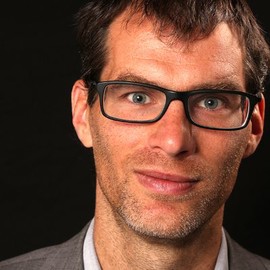Liekuut | Politics and media feed concerns about social divisions

In ‘Liekuut’, which is the Groningen dialect for straight ahead or straightforward, we share the perspective of one of our academics on a topical issue. This is how we show that UG researchers contribute to the societal debate.
There is not a newspaper or TV channel to be found where people are not quarrelling. Often, they are opinion formers or politicians, or deniers of something or other. People with strong or sometimes extremist opinions are put on opposite sides of the table, creating the impression that polarization is more and more on the rise, just like inequality and segregation. But is this actually true? Research shows a remarkable image, says Professor by special appointment at the UG Jochem Tolsma. He has been doing research into these phenomena for years. Tolsma: ‘What we actually see in these studies time and again is that the social divisions do not increase. That may be surprising because the media keep telling us that more and more groups are becoming diametrically opposed.’
On 13 October, Tolsma will deliver his inaugural lecture about this topic in the UG’s Academy Building.
Social divisions
Tolsma has identified three indicators for social divisions: ‘When inequality, segregation, and polarization between the same sections of the population increases, you can say the social division is increasing. It is, in fact, true that the inequality of opportunity and the gap between poor and rich has grown since the 1980s, no doubt about it. And yes, we are seeing segregation, especially in a geographical sense. The Netherlands has disadvantaged neighbourhoods and millionaire’s rows and cities that have relatively a lot or, on the other hand, relatively few migrants. We see, however, that this division of worlds is not increasing. To be sure, we are surrounded by friends and acquaintances that look like us, but not more so nowadays than before, and still a lot of people come into contact with different views or different educational backgrounds. Besides, we think that polarization is worsening, while again and again representative samples indicate that the vast majority is very nuanced in their thinking about various topics. So, we seem to have a false perception of the development of social divisions. They aren’t increasing.’
Politics and media are feeding the negative image
‘These false perceptions of social divisions are fed by the media, among others. You can see that people with deviating and extremist opinions are offered a platform at, for example, talk shows far more often. The media has gone somewhat overboard in that respect. The rise of online forums and social media too has provided a relatively big platform for groups limited in size to express their ideas. In addition, it can be seen in politics as well that more and more extremist standpoints are taken. The media, in their turn, write about that because an outspoken politician simply attracts more attention. All of this makes people’s perception of polarization and social division more negative than they are in reality.’
Framing
‘Recently, Minister of Justice Yesilgöz said that the woke movement is a danger to the democracy. But do you know how small that group of ‘wokeists’ is? That is pure framing. There are bigger threats to the democracy. And Extinction Rebellion that peacefully occupies one tunnel is set against Farmers Defence Force, while the latter has disrupted the entire country with their tractors. This framing creates the false sense of increasing polarization. When we ask people about it, a majority turns out to have understanding for both the farmers and the climate activists, and that both sides make a good point. What we call the silent majority is actually still in the middle of the political spectrum in terms of opinions, and this so-called increasing polarization does not play a role there at all.
No fanning
So, what to do with this knowledge? ‘Even in the turbulent recent history, the coronavirus years, the social divisions haven’t permanently and measurably increased. In all honesty: they have not declined either. Social divisions enhance the risk of violent conflicts. A policy to curb social divisions is therefore highly recommended. But it would be nice if politics and media would then not unintentionally contribute to polarization and fan the fear over divisions.’
| Last modified: | 10 November 2023 12.41 p.m. |
More news
-
16 May 2024
KNAW appoints Mladen Popović and René Veenstra as members
Professor Mladen Popović and Professor René Veenstra have been appointed members by the Royal Netherlands Academy of Arts and Sciences (KNAW).
-
01 May 2024
Behavioral Scientist Carsten de Dreu Appointed as Professor at the University of Groningen
The University of Groningen is pleased to announce the appointment of renowned social and behavioral scientist Carsten de Dreu as research professor at the UG.
-
09 April 2024
Kirsten van den Bosch: 'Connecting students with the work field really is achievable in every programme'
Dr Kirsten van den Bosch en her team won the Best Practice Award 2024 with their initiative to connect students with organizations to solve real problems within Academic Learning Communities.
